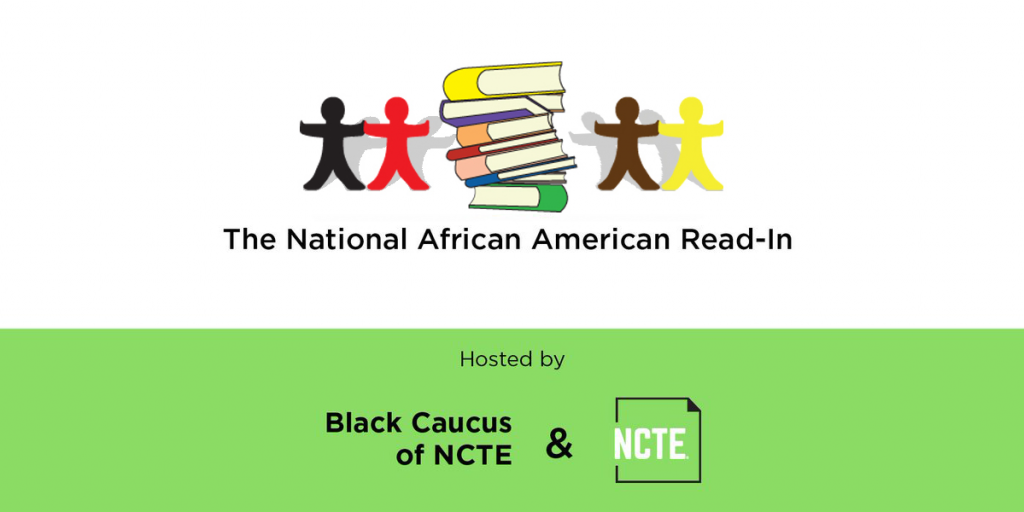The following post was submitted by NCTE member and African American Read-In host Dr. Tiffany A. Flowers.
There are many essays and articles that discuss the lack of books pertaining to African American experiences within children’s literature. The situation has been described as an “All-White World of Children’s Books,” “The Apartheid of Children’s Literature,” and a lack of attention to the issue of needing more books. There have been researchers calling for a more culturally relevant approach and to diversify the landscape of children’s literature through a variety of means. Twenty-seven years ago the Black Caucus of NCTE started the African American Read-In. More recently, we have seen the launch of the #WeNeedDiverseBooks campaign. Initiatives like these are attempting to shine a light on the lack of diversity in both the authors and subject matter of books being published today. But it’s striking to note that adults aren’t the only ones noticing the problem.
Recently, an 11-year-old African American girl named Marley Dias went viral on social media when she launched an international book drive campaign entitled #1000BlackGirlBooks. Her purpose was “to collect 1,000 books where black girls are the main characters.” When asked by reporters why she started the campaign, Marley nearly broke the Internet when she replied, “I was tired of reading about White boys and dogs.” For Marley and many other children of color, the issue when it comes to reading is not about respectability politics. Marley and children like her understand that reading is personal, diversified, and about access to high-interest reading materials.
As language arts professionals, we can consider some of the questions that Marley’s story poses:
- Are we willing to not only advocate, but make real changes for the students we teach?
- How many more children like Marley Dias exist within the United States?
- How many children yearn to see themselves in print?
- How many children want to express this sentiment but do not have the agency Marley has to change her situation?
Marley’s project is a perfect example of why the African American Read-In exists. This national initiative provides children with the opportunity to learn about African American authors and offers teachers, parents, and children the opportunity to engage in reading African American authors together. We want children like Marley to see themselves in books all year long.

Dr. Tiffany A. Flowers is an assistant professor in the Department of Cultural and Behavioral Sciences at Perimeter College at Georgia State University. You can contact her at tflowers@gsu.edu.

